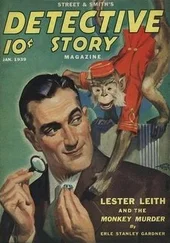Ashley Gardner - A Regimental Murder
Здесь есть возможность читать онлайн «Ashley Gardner - A Regimental Murder» весь текст электронной книги совершенно бесплатно (целиком полную версию без сокращений). В некоторых случаях можно слушать аудио, скачать через торрент в формате fb2 и присутствует краткое содержание. Жанр: Исторический детектив, на английском языке. Описание произведения, (предисловие) а так же отзывы посетителей доступны на портале библиотеки ЛибКат.
- Название:A Regimental Murder
- Автор:
- Жанр:
- Год:неизвестен
- ISBN:нет данных
- Рейтинг книги:4 / 5. Голосов: 1
-
Избранное:Добавить в избранное
- Отзывы:
-
Ваша оценка:
- 80
- 1
- 2
- 3
- 4
- 5
A Regimental Murder: краткое содержание, описание и аннотация
Предлагаем к чтению аннотацию, описание, краткое содержание или предисловие (зависит от того, что написал сам автор книги «A Regimental Murder»). Если вы не нашли необходимую информацию о книге — напишите в комментариях, мы постараемся отыскать её.
A Regimental Murder — читать онлайн бесплатно полную книгу (весь текст) целиком
Ниже представлен текст книги, разбитый по страницам. Система сохранения места последней прочитанной страницы, позволяет с удобством читать онлайн бесплатно книгу «A Regimental Murder», без необходимости каждый раз заново искать на чём Вы остановились. Поставьте закладку, и сможете в любой момент перейти на страницу, на которой закончили чтение.
Интервал:
Закладка:
Another letter documented a large sum of money paid out to Colonel Roehampton Westin of the Forty-Third Light Dragoons and a smaller payment to Colonel Spinnet. This had been dated January 1812.
I found a letter from Major Connaught written in June of 1812, on the back of a letter from Breckenridge to him. I read this eagerly. Breckenridge had written: "Badajoz went well, confound you. I should be major. Have you taken a leaf from Spinnet's book? What must I do?"
Connaught's reply had been terse. "Do nothing. The wheels turn. Doing things will be the death of you."
Interesting, if cryptic. "Doing" had been underlined three times.
"Here's something," Travers murmured. He handed me the letter announcing Breckenridge's promotion from captain to major in November 1812.
I contemplated this for some time. It had always struck me as odd that Breckenridge had never risen further in rank than major. Lydia had mentioned that Breckenridge had pestered her husband to be made a colonel, but Westin had resisted. I myself had been a lieutenant for years, then made captain during the Peninsular campaign for some of my actions at Talavera. For a man of my wealth and standing-which was to say, none-that I had risen as far as I had was commendable. Breckenridge, wealthy, connected, and a lord, ought to have been at least a colonel. Wellesley-the Duke of Wellington now-had risen through the ranks from ensign to general by the time he was thirty-three. And yet, from all evidence, Breckenridge, no older than I, had struggled to make even major.
The letter of promotion had been signed by Westin, the regimental colonel. Breckenridge had won his rank of major-after Colonel Spinnet had died.
I sat back, my thoughts spinning. John Spencer viewed the rioting at Badajoz as culminating in the death of his father. But what if we viewed it not as the murder of Captain Spencer, who had come across the melee by chance, but as the murder of Colonel Spinnet, an annoying cog in the wheel who had prevented Breckenridge from advancing in rank?
Eggleston had claimed he'd had ideas. Had one of those ideas been to corner Colonel Spinnet, under cover of battle or the revelry following, and murder him? Had Eggleston seen in the rioting at Badajoz a golden chance to rid his friend of the bothersome Spinnet?
I remembered the confusion at Badajoz, the drunken violence, the fear and horror, the futile attempts to stop it. Who could have said whether a man had been killed by a stray bullet or deliberately murdered by his fellow officers?
It was true that one of the four men killed Captain Spencer. Which of them had pulled the trigger was still unclear, but from out of the chaos, facts emerged, and crystallized.
I sat back, drumming my fingers on the desk. No wonder they worried about what Westin would say in the dock. He might very well blurt the whole tale.
"What is it?" Travers asked.
I came out of my reverie and forced myself to calm. Discovering the murder of Spinnet did not mean I'd discovered who'd murdered any of the other, or even if the same person had done so.
"I do not know," I said. "Maybe something, maybe not."
Travers looked puzzled. He'd read everything over my shoulder, and he seemed an intelligent enough lad. But he had not been at Badajoz, could not know how justice had gone up in the smoke of the siege fires and the aftermath. Breckenridge and his friends had escaped that justice. At least then. It was catching up to them now.
I swallowed the lump in my throat. "We should finish," I said, "and rescue poor Leland."
Travers gave me the ghost of a grin. "Do not worry about Leland. He is most resilient."
He must have been correct, because Lady Breckenridge gave me a look of annoyance when Travers and I arrived upstairs to fetch Leland. I had not played fair once again, her expression said. Leland took his leave politely, seemingly untarnished by his encounter with her.
She was right, I had not played fair. But I had needed truth, and had been ready to take it in any way possible. I bowed as I took my leave. Doubtless she would have spit on me if we had been alone.
Leland obligingly instructed his coachman to take me to Grenville's. I wanted to tell him of my findings and ask what he made of them. Grenville had a way of examining facts without emotion, turning them over to see if they were what I'd believed them to be. I thought sometimes that he ought to have been a barrister.
When I arrived at his home in Grosvenor Street, however, Bartholomew announced that Grenville had gone out and was doubtless at White's. I started to turn away, but the blond giant stopped me. "Wait, sir. I had an urgent message from Mrs. Westin's footman, William, a few hours ago. He asked that if you turned up here, would I send you down the road to the Westin house? Mrs. Westin is gravely ill, he said."
Chapter Eighteen
The sweltering afternoon suddenly chilled. The day's heat still radiated from the brick houses around me and the stones beneath my feet, but I no longer felt it.
A strawberry seller approached the carriage, smiled at the two young gentlemen. "Strawberries?" she queried. "Ripe and sweet."
"Ill?" I repeated.
"Yes, sir," Bartholomew said. "The lad was fair agitated."
I thought of Louisa and her recent "illness." I thought of Major Connaught dying in his sleep in Sussex.
I swung away and began striding down Grosvenor Street in the direction of Lydia Westin's home.
"Captain?" Leland's voice floated after me.
It would make more sense to press my way down the street in his carriage. But I could not stop. My feet moved, my body automatically avoiding passersby, vendors, horses, carriages.
I reached the Westin house. The doorknocker was still gone. I pounded on the door with my gloved fist.
After a long time, and more pounding, I heard male voices inside, and then William pulled open the door.
He had been weeping. His eyes were red, and mucus puddled on his upper lip. "Sir!" he cried in obvious relief. "You'd better come in."
He reached for me, then stopped, as though just in time he remembered he was a footman and I was a gentleman. I heard Leland's carriage halt behind me, but I could not turn around, could not explain. I strode inside and left William to face them.
The other voice I'd heard belonged to Mr. Allandale. He hurried toward me as I sought the stairs.
"She is very ill, Captain." His handsome face looked strained. "I have sent word to her daughter. I believe the best thing we can do now is leave her alone."
I did not waste breath telling him what I thought of that idea. I plunged up the stairs. Pain nudged my bad leg, but I did not heed it.
I reached the second floor to see a maid rush from Lydia's room, a soiled basin in her hands. She hastened toward the back stairs and another maid scurried up past her with a clean one.
Below me, Allandale called, "Captain, there is nothing you can do."
I growled something and pushed my way into the bedchamber.
Lydia lay among tangled sheets, her nightrail pasted to her limbs with dark sweat. The room was close and stinking, the window tightly shut. Lydia's face was dead white, her eyes red-rimmed. Her long hair hung in loose hanks, snarls of dark brown tangling her wrists and lying limply across her breasts.
As I entered, she put her head over the side of the bed and vomited into the clean basin that the worried maid had brought.
Spent, Lydia collapsed back into the pillows. Montague, the lady's maid, leaned down and wiped her mouth.
Lydia's dull eyes focused on me; her cracked lips parted. "Gabriel."
I came to the bed. I touched her forehead, her cheeks. She was warm, but not fever-hot, thank God. I brushed a lock of hair from her face.
A spasm wracked her, and she hastily sought the edge of the bed. When the episode ended, she lay back weakly, and Montague cleaned her mouth again.
Читать дальшеИнтервал:
Закладка:
Похожие книги на «A Regimental Murder»
Представляем Вашему вниманию похожие книги на «A Regimental Murder» списком для выбора. Мы отобрали схожую по названию и смыслу литературу в надежде предоставить читателям больше вариантов отыскать новые, интересные, ещё непрочитанные произведения.
Обсуждение, отзывы о книге «A Regimental Murder» и просто собственные мнения читателей. Оставьте ваши комментарии, напишите, что Вы думаете о произведении, его смысле или главных героях. Укажите что конкретно понравилось, а что нет, и почему Вы так считаете.












